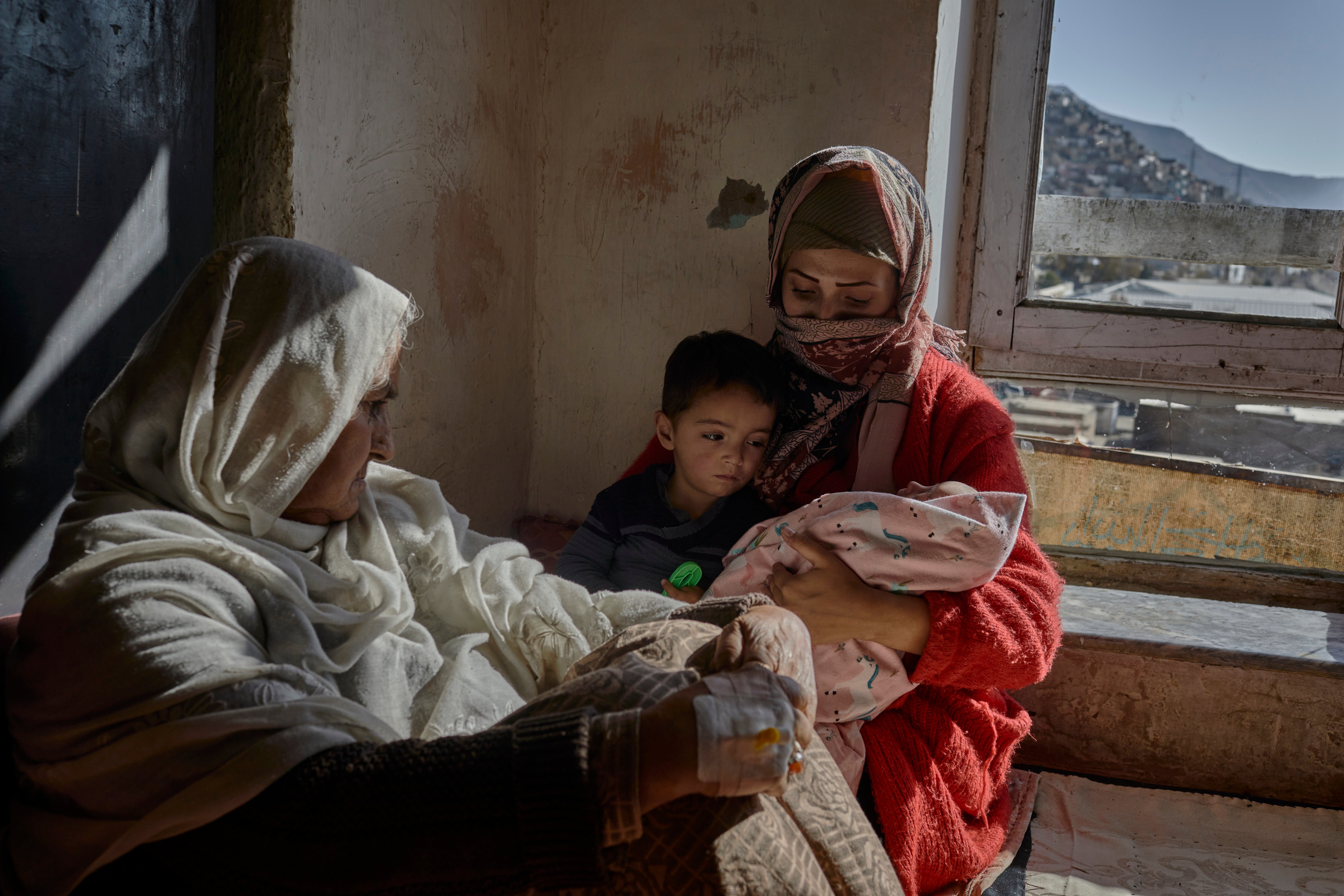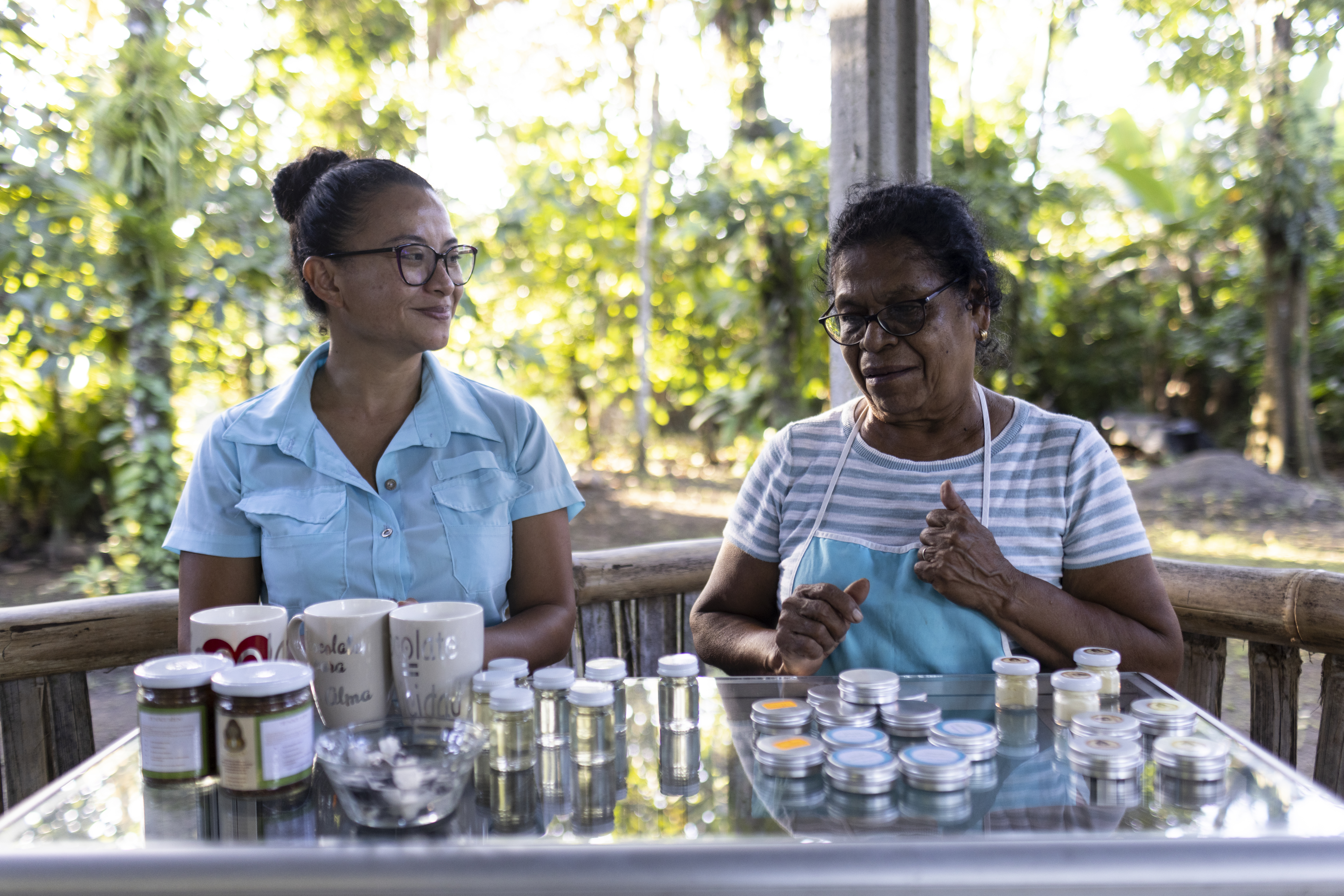International Women's Day: Somali refugee women come into their own outside of home
International Women's Day: Somali refugee women come into their own outside of home

AISHA REFUGEE CAMP, Ethiopia, March 8 (UNHCR) - As a Somali girl and the youngest of five children, Amina Dualeh isn't accustomed to standing up to her father.
But when her parents, two brothers and two sisters decided to leave Aisha refugee camp in eastern Ethiopia, their home in exile for more than a decade, and return to Borama in north-western Somalia, she put her foot down. Just over a year shy of graduating from junior high school, she was not about to lose the opportunity by returning to a place where her parents likely couldn't afford school fees.
"I even want to go to college," says the 20-year-old, who got a late start because she had no chance to go to school until her family reached the refugee camp. "That's why I have to finish school."
Both she and her close friend, Wiilo Ibrahim, the top two students in their class, talked their parents into letting them stay behind with friends and relatives in Aisha camp until they graduate this June - a highly unusual move for Somali girls.
"Because I am the youngest girl, my father and mother wanted me to work at home," says Amina, a confident and outgoing young woman. "They didn't want me to go to school, but I managed to convince them."
As UNHCR prepares to close all but one of the eight refugee camps opened since 1990 to care for Somali refugees in eastern Ethiopia, Somali women and girls say they have profited from opportunities in the camps that they would never have had at home in their traditional, male-dominated society.
"Somali girls and women have become very strong and tough in the camp," says Amina. "It was good for me to be in the camp."
The free education offered in UNHCR's refugee camps appears to be their top priority. "Here it's better," says another refugee girl, 18-year-old Man Abdi Ali. "The area we fled from [in southern Somalia] was a small village, and in this village, girls do not go to school. Here every girl can attend school. There I could only have worked in the house."
The improvement in the lot of Somali refugee women stems not only from UNHCR's policy of making the protection of refugee women and children a priority, but also from their very flight into exile, where nomadic men could no longer raise animals as they traditionally did.
"It is only the women who work in the camps," said Halima Ilmi, 38, the mother of seven children, six of whom were born in Aisha camp. "We have extra responsibilities and we sit with the men and decide things. We are 100 percent happy with this situation. There has been a dramatic change in the men because they accept our role. Now they are good."
When committees are set up to represent the concerns of refugees in discussion with UNHCR and its partners, the refugee agency insists that women be equally represented - a move that sparks change in many traditional societies in Africa and elsewhere.
In the camps in eastern Ethiopia, Somali men have accepted the equality of women, says UNHCR Senior Programme Assistant Abdusemed Mohammed.
"Years ago, if we called a meeting of men and women, the men would say, 'Why should the women come? They should stay at home, we speak for them.' But after years and years, they accepted this idea," says Abdusemed.
However, Mako Osman, an outspoken 35-year-old mother of five children born in the camp, is not so sure.
"It was good here," she said in Aisha one evening before her return to Somaliland, the self-declared independent state in north-western Somalia. "Our rights were respected. Here there were many things that forced the men to respect us. I don't think our rights will be respected as much at home."
It's her two small daughters she's particularly worried about. "I hope my girls will have a better life than I did," says Mako, who never had a chance at an education.
Squatting on the ground outside her small tukul (dome-shaped traditional hut), she's washing dinner dishes in a tiny metal basin while tending to both her daughters - 15-month-old Nimo and four-year-old Hamda - at her side. Her husband, like so many other Somali men, is laying who-knows-where in a stupor after spending the afternoon chewing khat, a narcotic leaf.
Despite not supporting the family, her husband does respect her rights, she says. "Now, yes. Tomorrow? I don't know. Then the true life will start."
Of the impending departure for Somaliland, she says, "I am not sure exactly what type of life we are going to have there, but one thing is for sure: for girls, life is better in the refugee camp."
Once her whole community decided to return home, she says she had no choice, despite her fears for her daughters. "The problem is, you can't live alone when all your people, your relatives, your friends, the people with whom you have come, all decide to go home. You will not stand up and say 'I will be alone'."
Simone Wolken, UNHCR's Representative for Somalia, says it will be up to Somali returnees to hang onto the rights they earned in refugee camps: "It is very much up to the Somaliland women themselves to make a change in their society. Nobody will do it for them."
She encourages returnee women - "rather than resigning themselves to their fate" - to work against female genital mutilation, against the spread of HIV and AIDS, and for women's and children's rights, "which would lead to the desired change and would help their daughters."
Amina Aden Bileh, the dynamic head of the women's refugee committee in Aisha camp, is also optimistic that life in Somaliland will be better than some refugee women fear.
"The women in this camp now have a powerful voice," Amina says confidently. "But it's not only in the refugee camp. The world has changed since we became refugees. Educated women's voices will be heard. They will not go back to the previous situation."
By Kitty McKinsey in Aisha camp, Ethiopia








